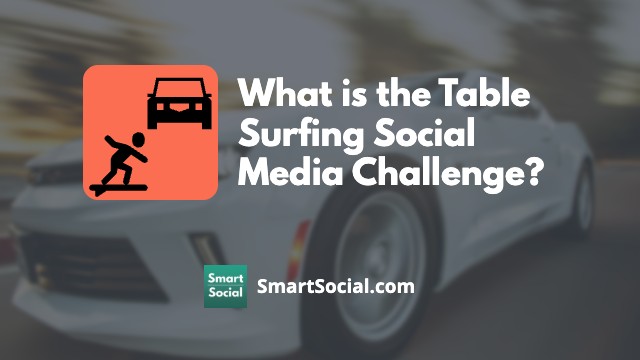Negative Effects of Video Games (2025)
Green Zone App
(Click here to learn more)
Dangerous Social media challenge
(Click here to learn more)
Red Zone App
(Click here to learn more)
Gray Zone App
(Click here to learn more)

While video games have undeniably become a significant part of modern life for most kids and teens, there are many pros and cons for parents to be aware of. Video games offer avenues for entertainment, creativity, and even learning, but they also come with potential pitfalls that we cannot ignore. In our digital age, understanding these potential negatives is crucial for helping our teens develop healthy digital habits.
In this post, we will delve into the possible negative effects of excessive gaming, from addiction and academic implications to social and health-related concerns. Included is advice from several experts on how to help decrease the negative effects of video games on students so they can make more mindful gaming choices.
Educators and parents: Guide your students' reflection and discussion with this student worksheet. (Log in to your Google account and select File-->Make a Copy)
Parent & educator video lesson
What are the negative effects of video games on teens?
A Canadian study from McGill University shows that human-computer interactions, such as playing video games, can have a negative impact on the brain.
Some negative effects of videos games are:
- Noticeable changes to behavior
- Ignoring or not prioritizing responsibilities or interests over game time
- Continuously playing video games despite the negative impact it may have
- Difficulty sleeping or changes in sleep patterns
- Declining grades or difficulty in school
- Can lead to social isolation
- Poor time management skills
According to the Harvard Medical School, playing too many video games can have these negative effects as well:
- Obesity
- Gaming injuries such as carpel tunnel or “gamers thumb”
- Gaming addiction
The Journal of Adolescent Health reports that video games and watching videos could be related to an increase in childhood Obsessive Compulsive Disorder
Negative effects of video games in the news

We discovered that a man from India had approached our son on Roblox and coached him to bypass our internet security controls. This person then persuaded my son to take compromising images and videos of himself and send them via our Google Mini. It was hard to get to the root of why my son did that. I think he was lonely, thought this was a genuine friend, and we think he was given gifts on Roblox that made him feel special. It was really every parent’s worst nightmare. - The Guardian

This is a reminder for parents to stay alert, CEO of Children at Risk Bob Sanborn said. It’s not just Snapchat or Facebook—video games are another space where predators can easily connect with kids. It may seem harmless, but there’s a lot of contact and grooming that happens there, especially between young girls and older men. - Click2Houston

Where does a predator go that’s interested in children? They go to video games. They used to go to the schoolyard and now they go to video games - A Wired Family Co-Founder and President Stephen Smith, Local 12 News
What are gaming disorder warning signs?
According to World Health Organization, which recognizes gaming disorder as a mental health condition, there are three signs that someone might be struggling with gaming disorder:
- Impaired control over gaming (e.g. onset, frequency, intensity, duration, termination, context)
- Increasing priority is given to gaming to the extent that gaming takes precedence over other life interests and daily activities
- Continuation or escalation of gaming despite the occurrence of negative consequences
Watch: How to Identify Warning Signs of a Gaming Disorder
On this episode of the SmartSocial.com Podcast, Josh Ochs chats with Morgan Seymour, LCSW, of Open Sky Wilderness Therapy about identifying warning signs of a gaming disorder and what to do if you think your child is addicted to playing video games.
Expert tips about video games
1. What are some red flags parents need to look out for?

Dr. Mike Bishop tech addiction expert, Summerland Camps
These red flags can indicate that your child is struggling with screen time and gaming:
- Short tempers that are aggravated by screen time. If your kids are playing video games, you can sometimes see them getting frustrated at the game. Watch out for a quick temper and see if the game has taken control over their mood
- Kids are not able to self-soothe when they’re playing video games. This translates into the next point, which is having problems going to sleep or waking up in the morning
- Having access to a device every night. If we let our kids use devices without limits set, without some rules and structure, they’re going to take their devices to bed with them and they’re going to be up at night browsing social media or playing games. Research says, allowing your child to have a TV or device in their room unchecked at night results in less sleep and having a harder time waking up in the morning
- Passing up face-to-face activities for screen time activities. Another major red flag is when you see your child passing up normal opportunities for socialization or outside play
2. Focus on critical thinking skills

Melissa Corkum, Parent and Wellness Coach
I'm a parent coach and TV talk show host who recently interviewed my gaming husband about kids and video games. We focused on how video games can be used positively to increase critical thinking skills and how kids who seem addicted to video games aren't actually lazy...quite the opposite.
If parents feel the need to curb video game time, they should look for opportunities for their child to have adventure and purpose. A lot of games are about conquering something, so we, as parents, need to find ways to challenge our kids in real life outside of screens. Our kids need the hit of dopamine that video gaming can provide.
3. Be aware of gambling and risky decision
Will Bond, Education Writer at Twinkl
When considering the dangers of video games, it's always important to note that it isn't as binary as either being good or bad. Gaming is a very broad topic that can encompass several worrying aspects that may harm a child's development. However, these can also be mitigated, while other areas offer opportunities that can benefit children's growth.
As for the harmful effects of gaming, it should be known that video game addiction is a very real concern parents should have when allowing kids to play games for unrestricted amounts of time. However, with the right oversight, this issue can be reliably averted. Likewise, many modern games contain systems similar to that of gambling. 'Loot boxes' or 'packs' are common terms for in-game items that offer a reward of variable value based purely on luck. Worse is that these items can often be paid for using real money. Parents should be particularly aware of popular games that include these features and ensure that their child understands the dangers of gambling, how it exists in their games, and that real money shouldn't be spent on purchasing luck-based items.
In contrast to these downsides, video games can also be a source of education, a platform for healthy socializing, and simply a very engaging piece of entertainment that can reduce stress. There are many excellent educational games out there that balance the fun interactivity of gaming whilst being safe and educational. Video games aren't necessarily bad, it's about monitoring play and ensuring that only the right games are played.
4. Depression and mood swings are a sign of addiction
Holly Zink, Tech Expert and Writer at Digital Addicts
While playing video games in moderation is unlikely to have any negative effects on your child, the same cannot be said for those who play excessively. Video game addiction is a real disorder and affects many teenagers and young children. This disorder can have severe developmental effects, especially on a young child. Bouts of depression, social anxiety, mood swings, and loss of interest in other activities are all signs that your child may have a gaming addiction.
If you suspect that your child may be spending too much time playing video games, the best thing you can do is set limits on their playing time. Some video games (especially those targeted at children) come with parental settings that allow you to set a maximum number of hours your child can play the game. Once their allotted time has run out, they will be unable to access the game until the next day. If your child plays a game that doesn’t have these parental settings, you can always practice the same method by taking away their electronics after a certain amount of time each day.
5. Take an interest in the games and events as a family

Lou Sabina, Professor at Stetson University
I would argue that the largest negative effect is developing an addiction to gaming that can distract from academics and even from children being able to form social relationships with others. Although we are in an exciting time where there are more opportunities to build relationships through gaming due to increased online connectivity within gaming platforms, there is still something to be said from face-to-face interactions that are lost when children spend too much time playing games.
It's important to note that many games and online gaming platforms have "events" now where a gamer "must complete a certain objective by Sunday at 11:59 PM Eastern Time (for example) to receive a certain item within the game" and if they don't complete the task, they never have the opportunity to receive that item again. I think this is one of the out-of-the-box things that has changed gaming over the last 5 years that has led to more and more teens staying up at all hours of the evening just to make sure they get a certain item or reward. This is classic extrinsic motivation. However, it can detract from sleep, social opportunities, and other hobbies.
Parents should take the time to learn about the games their children are playing, take an active interest in their gaming hobbies, but be present in their lives to show them there is a life outside of video games. It can be a hobby (it's a great hobby), but it shouldn't be the do-all and end-all in a child's life.
6. What can parents do about the negative effects of video games?

Josh Ochs, Founder, smartsocial.com
There are many ways you can help your teen balance their video game screen time:
- Play games with your kids to understand what they are doing and show interest in their hobbies
- Before giving your student access to a new game, ask them to explain why they want to play it. Then, spend some time playing the game on your own and decide if it is safe for your family to play. Know that your child has perhaps already played it at their friend’s house
- Schedule game time and set time limits before they start playing every day
- Use a physical timer or alarm to set time limits
- Teach your children that video games are only to be played in moderation (or, best of all, as a family)
- Challenge your student to find offline activities they enjoy and can add to their resume
- Have an open dialogue about video games with your children. Consider talking about the dangers of playing with strangers, sharing personal information in chats, graphic video game content, appropriate language, and bullying behavior
- Model positive screen time behaviors around your children
Additional resources for parents
- Pros and Cons of Video Games for Families
- Fortnite Parent Guide
- Minecraft Parent Guide
- Call of Duty Parent Guide
- Minecraft Parent Guide
- Roblox Parent Guide
Conclusion
While video games offer a captivating blend of entertainment, challenge, and creativity, they also come with potential drawbacks that cannot be overlooked. Excessive gaming can lead to problems like addiction, health issues, poor academic performance, sleep deprivation, and impaired decision-making skills. However, it's vital to remember responsible gaming and balanced lifestyle habits. Parents play a crucial role in setting sensible boundaries, encouraging diverse interests, and promoting healthy screen time. As with many things in life, the key is moderation. Through a balanced approach, we can help our children reap the benefits of video games while safeguarding them against potential pitfalls.
Protect your family and enter for a chance to win cool prizes
Become a member or log in to learn more on this topic
Protect your family and enter for a chance to win cool prizes

., start learning from this page to earn points!*
Hello, I'm Josh, the founder of SmartSocial.com.
Don't leave this page until you fill out our feedback form that will appear after you learn from the resources...
Become a Very Informed Parent (VIP) to get our social media suggestions in your email every Tuesday & Thursday.



Hello, I'm Josh, the founder of SmartSocial.com. Protect your family by taking my 1 minute quiz
This quiz will help you understand how safe your family is


Schools & Districts: Partner with us to protect your community online
Our remote presentations (and website) teach over a million parents and students each year how to be safe so they can shine online. We teach students how their accounts can be used to create a portfolio of positive accomplishments that impress colleges and employers.


Join Our Smart Social Podcast
each week on iTunes
With over 500 episodes, Josh Ochs interviews psychologists, therapists, counselors, teachers, and parents while showing you how to navigate social media to someday shine online.
Listen on:




.jpg)
.jpg)
.jpg)


